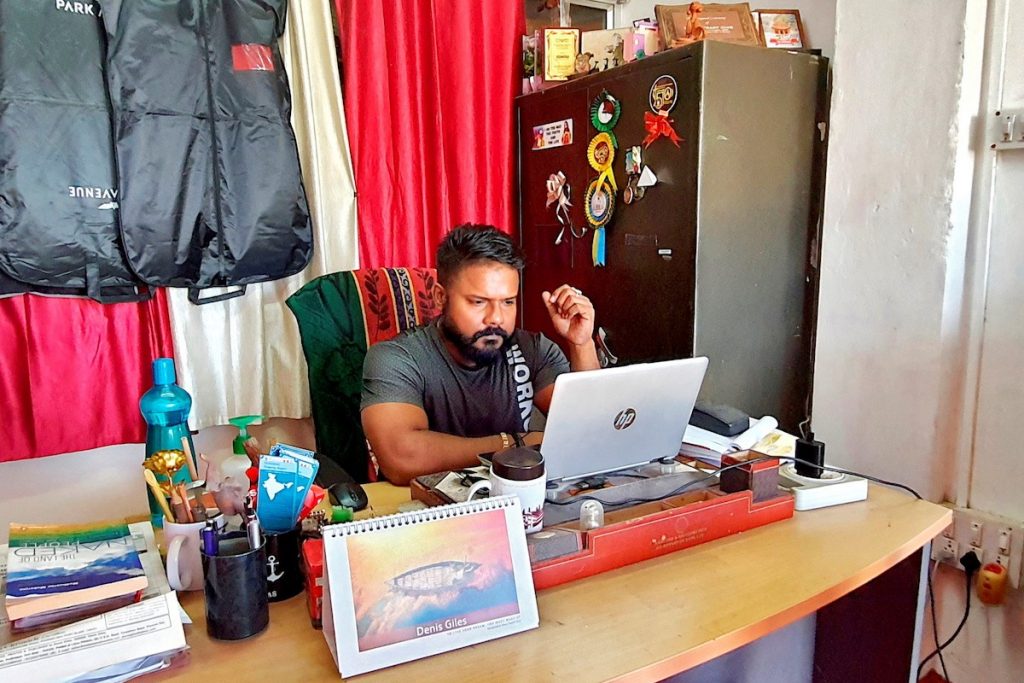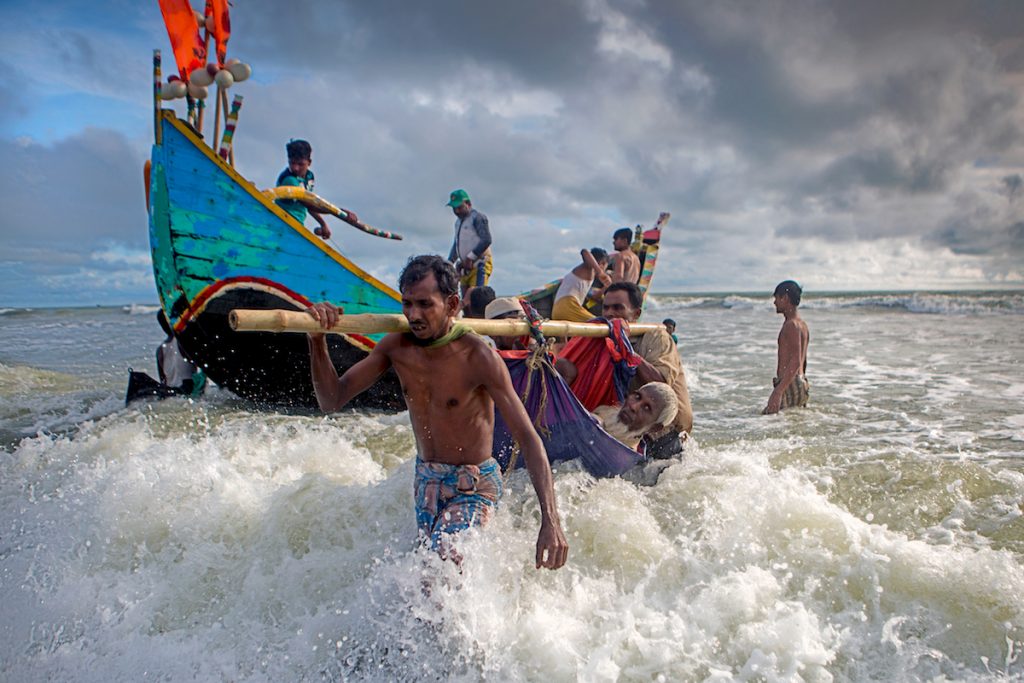
Denis Giles, the editor of a small Indian newspaper, received a phone call as he sat typing in his one-room office in Port Blair overlooking the languid waters of the Andaman Sea.
The caller, Mohammed Siddiqui, was frantic and largely incoherent. Giles said he was about to hang up until he heard, in broken Hindi: “Please help me… Many people may die.”
Siddiqui pleaded with Giles to spread the word of dozens of Rohingya Muslims fleeing Bangladesh for Malaysia aboard a crippled fishing boat in the Andaman Sea. Eight of the passengers had already died.
“You can help me save lives,” Siddiqui told Giles, who publishes the English-language Andaman Chronicle, which has been covering news in India’s coral reef-fringed Andaman and Nicobar archipelago for more than 15 years.
Siddiqui’s brother and the other Rohingya passengers had paid human traffickers to smuggle them to Malaysia from cramped refugee camps in southern Bangladesh that are home to more than a million Rohingya refugees from Myanmar.
Siddiqui, who lives in Australia, told Reuters that he learned of the fate of the vessel after his brother made an SOS call from a satellite phone on board the boat on Feb. 18, roughly a week after it embarked on the voyage from Cox’s Bazar in southeastern Bangladesh.
“No one knew of the boat until the engine developed a snag and it drifted near Indian waters,” Siddiqui said. “That was when I got to know that my brother was stuck on a boat with 80 survivors and that eight were dead due to extreme dehydration or hunger.”
Siddiqui said he tried to reach the Bangladesh Coast Guard and other agencies.
“There was just no response. Finally, I decided to call some journalists and based on the GPS coordinates I realized the only person who could help was someone based in the Andaman Islands,” Siddiqui said.
Favored Destination
Hundreds of thousands of Rohingya were forced to flee their homeland after a crackdown by Myanmar’s military in 2017. Myanmar denies accusations of genocide and says the army was fighting a legitimate counter-insurgency campaign.
The Rohingya are a minority group, most of whom are denied citizenship by Buddhist-majority Myanmar, which considers them illegal immigrants from Bangladesh.

Muslim-majority Malaysia has been a favored destination for fleeing Rohingya. Many risk the perilous sea journey in rickety boats despite Malaysia saying last year it would no longer accept them.
Siddiqui, who was given the coordinates by the fishing boat captain, passed them to Giles, who was the first person to call the Indian Coast Guard to alert them. That was Feb. 19.
“I told them people are dying they must send ships to help them, but Indian officials instead suggested I send them details via email,” said Giles.
He fired off an email with the coordinates of the boat that was adrift roughly 235 km northeast of Port Blair, said Giles in an effort to explain the urgency.
Giles, who published a story about the refugees on Feb. 21, said he only received a call from the coast guard on Feb. 23 to inform him that a rescue was under way.
The Indian Coast Guard and Navy did not respond to requests for comment on the rescue operation.
‘The sea is not their home’
But while the boat has been located, the fate of the passengers remains far from certain.
India’s foreign ministry confirmed the boat had been found and that two Coast Guard ships were helping those on board and repairing the vessel so that it could return safely to Bangladesh.
But Bangladesh Foreign Minister A.K. Abdul Momen last week told Reuters his government expects either India, the closest country, or Myanmar to take it in.
Aid agencies are demanding that governments stop passing the buck and act.
“The law of the sea equally binds all states to come to the rescue of persons in distress at sea and deliver them to a place of safety,” said Catherine Stubberfield, an Asia-Pacific spokeswoman for the UNHCR.
“This applies regardless of nationality, legal status, or circumstances in which people in distress are found.”
New Delhi has not signed the 1951 Refugee Convention, which spells out refugee rights and state responsibilities to protect them, nor does it have a law protecting refugees.
Giles said he feels relieved the refugees are at least getting help for now, along with food, water and medicine.
“I hope the Rohingya receive a warm welcome from a country at the earliest,” said Giles. “The sea is not their home.”
Source: Licas Philippines
0 Comments